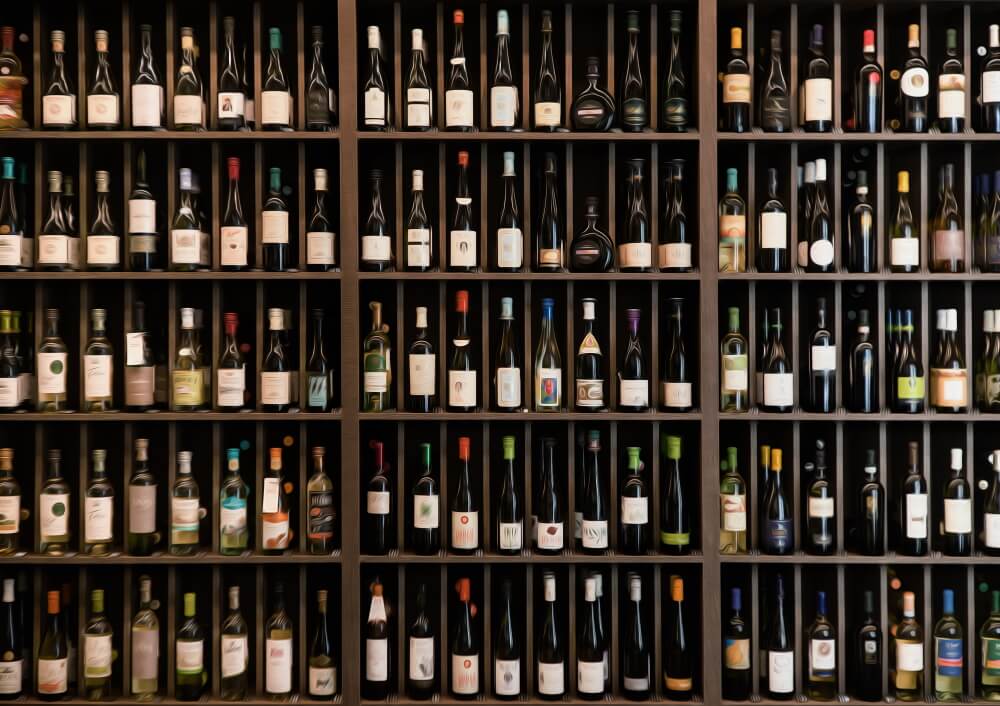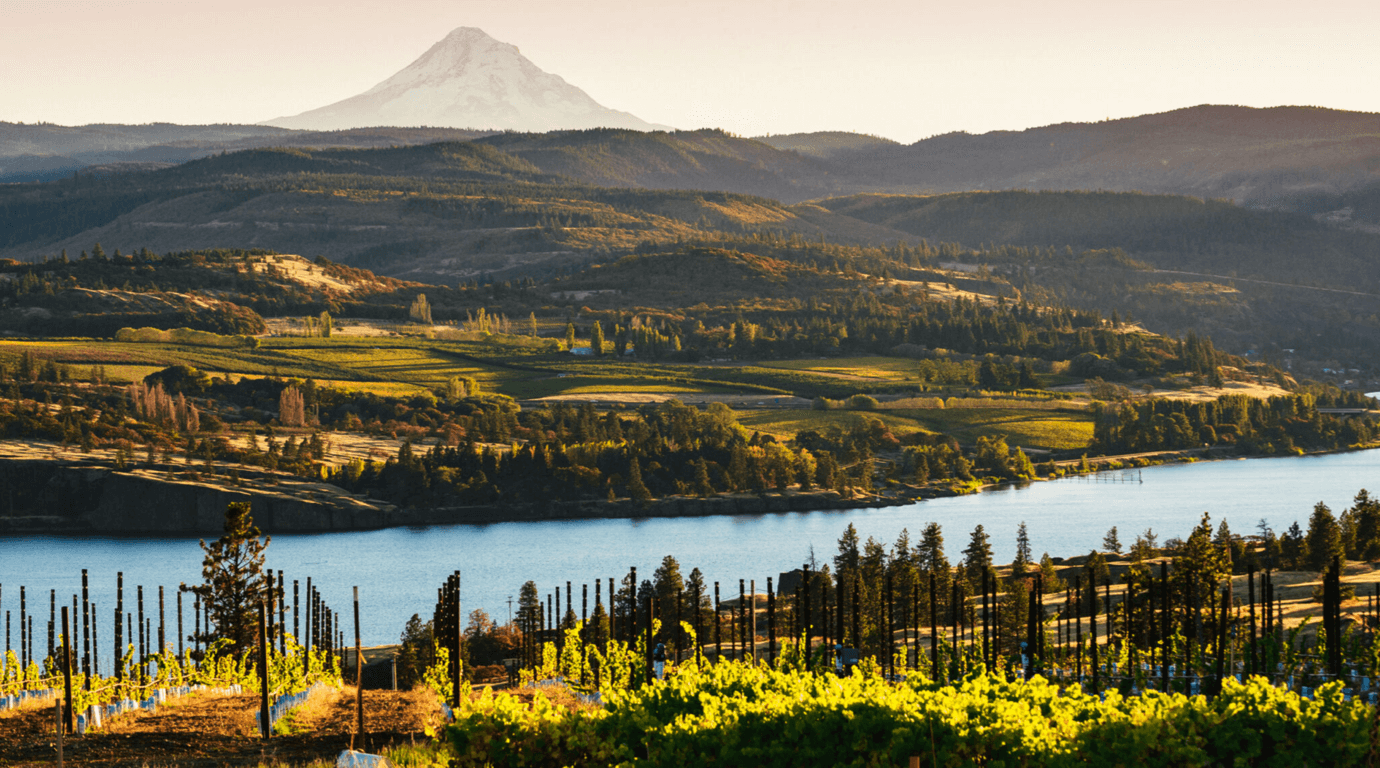
The buying process at The Good Wine Shop during the pandemic has taken a very different shape from in the past. Whilst all our suppliers have been stuck on their home offices, like many of you, and growers have been spending some quality time super-nannying their nurtured vineyards, you could argue we’ve been even more objective than ever. Though, as you probably know by now, we love a memorable anecdote from a winemaker to give the back story, even if via zoom. Ultimately, of course, it is what our customers want and like that matters but I personally get a great big buzz from introducing new finds. So here are my spring picks.

At first, I was completely convinced that the Empire of Dirt Syrah came from the Northern Rhône and had to double check the label. Varietally naming it Syrah, not Shiraz, barely hints at the elegance, purity, balance and sophistication of this Yarra Valley wine. I then discovered it is Rivar Meyer-Ferguson’s project, son of the legendary Timo of Mayer Wines, who has cult-status down-under. Even the slopes south of Healesville are ‘celebrated’ for their steepness, with vineyard names such Bloody Hill.
The ‘Dirt’ has a subtle smoky herbal nose with a cure meat nuance. It is intricate and fluid, full of layers of summer fruits, has some sweet spice and great persistence, and is a superb example of elegance and purity over muscle and showiness.
For the wine geeks, it is fermented spontaneously with 50% whole bunch and 50% de-stemmed fruit. The wine spends 6 months in old oak barrels and is bottled unfined and unfiltered with just a small addition of SO2.

The imaginatively named and beautifully presented Sea of Dreams is a Garnacha made by Mikel Sanz, the 2nd generation of the family in Navarra who craft truly tasty, authentic wines, which have a real sense of place.
Aromatically it is delicate with hints of red cherry, strawberry liquorice and Parma violets. In the mouth there is a stoniness and stalky crunch to begin, then a pure, red fruit juiciness and a lick of liquorice. It is like a cross between a cool climate/ vintage Pinot Noir and a Beaujolais with a hint of spice. With just 3,300 bottles made, you will have to be sprightly to secure some of this vintage.
Grapes are from four plots, together totalling 5 hectares and were planted in 1987 at the top of a high plateau with the northerly "cierzo" wind keeps temperatures down and slows ripening. Soils are a mix of clay, sand and large limestone rich pebbles. Farming is non-certified organic and the grapes are fermented with native yeasts in concrete tanks and aged in old 500 litre French oak barrel. It is bottled without fining or filtration.

English red wine has such potential and with climate change and so much Pinot Noir being planted it is no great surprise, is it? In fact, the black grape that could become the UK’s signature is not Pinot Noir but Cabernet Noir, due to its excellent disease resistance, fuller body and darker fruit profile.
The Bee Tree red blend incorporates 14% Cabernet Noir, which adds weight and density to the lighter Pinot Noir. There is a touch of funk but a super-appetising ripely-fruited juiciness and some savoury intrigue. I would give this fun-packed, joyful wine a slight chill and smash it, whilst feeling good about supporting a local (East Sussex) producer.
The fruit was destemmed, cold macerated for 3-4 days, and fermented over a fortnight before going into old oak barrels for maturation. Availability of this wine is limited.

Not only will the striking red label of this wine set it apart on your table, but the juice will too. Gluck and Bray’s Clare Valley Malbec is plush and generous, with a dense, juicy core of ripe black cherry, damson and plum fruit while a nod to something spicier comes through on the finish. There is a delightful herbaceous lift thanks to Clare’s cooler evenings ensuring this is a refreshing and moreish delight.
Sustainable viticulture practices are followed, which includes some organic techniques, but their bigger focus is on water efficiency and carbon neutrality. It is fermented in one tonne vats with one punch down a day before going into old French oak for a year. Only 1200 bottles were made.

Whist David Franz’s Long Gully Road Semillon has developed a serious following the ancient vines did not produce enough to bottle anything for the last two vintages. However, aficionados will not miss out as, happily, we have sourced a like-for-like replacement in a sensational Semillon from the Loan’s Vineyard.
In David’s (cleaned-up) words: "Simply a Sémillon made in the purest way possible. Pristine fruit was picked, pressed to barrel then nature did the rest. Bottled unfiltered, unfined and unf**ked with! 3.2 tonnes of fruit was picked on 24 February from Rick and Jesse Loan's organic and biodynamic Bethany Road vineyard and just 2340 bottles were made.
Fleshy ripe lemon and lime over summer grass all comfortably resting on a subtle savoury bread-dough and cashew nut underlay. Textural fleshy mouth wraps seductively around a VERY Semillon centre of poised acidity. The counterbalance of gentle assertive acid and generous fruit is framed with a softly drying, very long finish.
The whole sits moreish-ly on the palate, daring your mouth to have another sip. Waxed lemon citrus curd vies with textural mouth filling golden brioche while honeyed oak evokes late Autumn endless days."
Many more delights are dropping instore over the coming weeks so do call in for many more enthusiastic staff recommendations and let us know what you think please.



